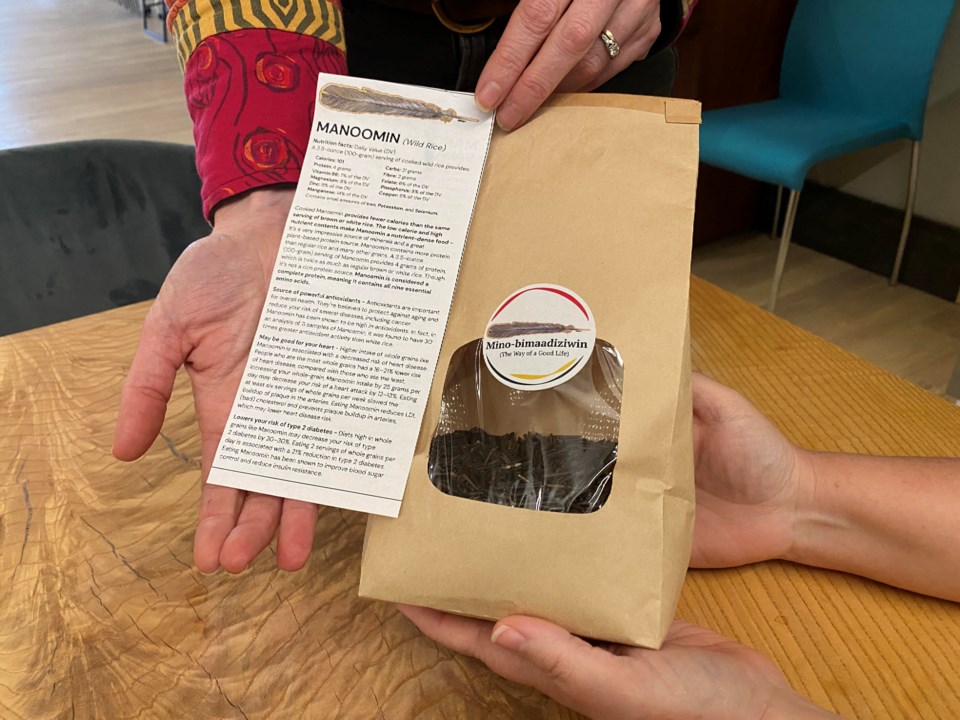A new-to-Guelph Indigenous-led program hopes to help Indigenous people reconnect with their culture through ancestral foods.
Nimide wayan, an Indigenous way to say medicine bundles, are circulating around Guelph and Wellington to over 100 households through the efforts of Harvest Impact, a local social finance fund through 10C, that is helping the people behind the Indigenous bundles, Indigenous Food Sovereignty and Security Collective/Circle (IFS).
The medicine bundles contain ancestral Indigenous food.
“There’s also really collaborative relationships that have been established to … continue this work,” said Julia Grady, co-founder and executive director of 10C. “There really wasn’t an Indigenous-led food program here.”
Traditional food like manoomin (wild rice) is something folks will find in the food bundle. “Wild rice is something we have taken away by destroying the land, it’s hard to rebuild back that connection through food,” said Grady.
Although costs are going up in grocery stores, wild rice is costly, but important, she said. The food offerings with the bundles are also based on seasons, which we don't necessarily think of food in a seasonal way, Grady continued.
“Trying to find Indigenous stewarded farms, which they would love to find, but it’s difficult. But at the same time getting that is very expensive,” said Jess Barrie, community investment and engagement lead at Harvest Impact.
“IFS has some round tables set up in a circle and they’ll often pack together there in a group,” said Barrie. They make the bundles at The SEED, a food access program on Huron Street, and IFS will sometimes receive leftover food from Second Harvest.
A new approach of gifting has been created for the IFS, instead of clicking a donate button, folks are asked to build relationships with IFS first, then gifting can be part of the conversation later on.
Harvest Impact has set up a form on their website with a questionnaire, this is the first part of the relationship building. After the form is filled out, someone from IFS will contact you.
“If you’re giving a gift to the Indigenous Sovereignty Food Insecurity Initiative, if it’s even appropriate that you give that gift. When you give a gift, it should be accepted but doesn’t always have to be accepted,” said Grady.
“Everyone is really wanting authentic relationships to be the core at the centre,” Grady said.
“They are very much interested in people that maybe don’t have a financial gift to give, but maybe they have time or energy,” said Barrie.
It’s incredibly good, challenging work, and going into this like I know nothing, going slow and learning along the way, said Barrie.
“Our society now is so transnational, and fast. We don’t take all of that reflective time to learn, and understand, and connect,” said Grady.
